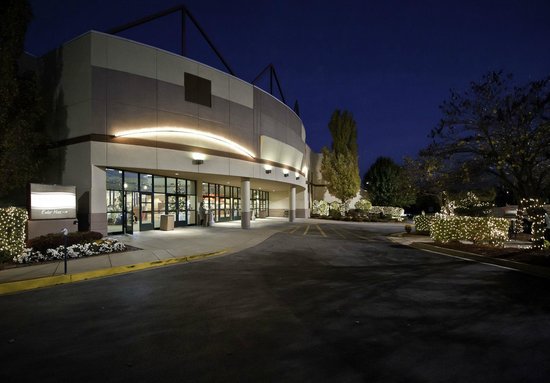

Over the next few years, it amassed enough of a following to become one of the network's most popular shows, making catch phrases out of Welk's oft-repeated "wunnerful, wunnerful" and "ah-one and-a two." Its trademark visual style was built around low-budget cardboard props, bright pastel colors, and bubble-blowing machines. The Lawrence Welk Show made its national debut in 1955 as a midseason replacement on ABC. The idea of working in television captured his imagination, and led him to move to L.A.
Lawrence welk theater branson mo tv#
In 1951, he made a successful appearance on a late-night TV show in Los Angeles. The waning popularity of big bands subsequently forced Welk to go back on tour to make ends meet. A 1938 gig at the William Penn Hotel in Pittsburgh prompted one fan to compare Welk's light, bubbly music to champagne, and Welk adopted the tag from then on, describing his sound as "champagne music." In 1940, at the height of the big-band era, Welk secured a booking for his group at the Trianon Ballroom in Chicago it proved such a success that Welk moved his family to Chicago and wound up with a ten-year residency there. In 1937, Welk moved the group to Omaha, and it soon grew into a ten-piece outfit, playing swinging dance music in the so-called "sweet band" style. Welk's band stayed headquartered in Yankton for the next ten years, playing both locally and all over the Midwest they went through several name changes, including the Hotsy Totsy Boys, the Honolulu Fruit Gum Orchestra, and the Biggest Little Band in America. On the way, the group stopped in Yankton, SD, and was offered a one-week deal to perform on local radio they were such a success that they were signed to a permanent contract. He eventually formed his own quartet, the Lawrence Welk Novelty Orchestra, and in 1927 decided to head south to New Orleans in search of work. Upon turning 21, Welk took up music full-time, playing in various polka and vaudeville-style bands around the area. Four years later, he convinced his father to buy him his own accordion in exchange, he promised to work on the farm until he was 21, and to give all his musical earnings to the family up to that point. He learned to play polka music on his father's accordion, and at age 13, he began performing professionally at local dances and social events. One of eight children, Welk dropped out of school in the fourth grade to work on the farm, and spoke almost nothing but German up until his teen years. His parents had fled the unrest in Alsace-Lorraine, the disputed border region between Germany and France, and settled on a small farm on the outskirts of town. Welk was born on March 11, 1903, in the small, heavily German town of Strasburg, ND. Yet that essential conservatism helped give The Lawrence Welk Show an amazingly lasting appeal after it lost its network slot, it spent more than a decade in syndication with greater success than ever, and found new life when its reruns became the chief source of revenue for many public television stations across the country. He also drew criticism for the extreme scarcity of minority performers on the show, seemingly another symptom of its kowtowing to white-bread Middle America. He and his acts were often dismissed as hopelessly square, by turns fluffy or sentimental, and reflecting an idealized purity that didn't really exist anywhere. For people who considered themselves remotely hip, that tone made Welk's name synonymous with sanitized entertainment, and an easy target for derision. Demanding and particular, Welk put them through rigorous rehearsals, and aggressively enforced the inoffensive, nonthreatening tone that made the show so palatable for viewers of all ages. In the process, he created a stable of familiar performers whose regular appearances were eagerly anticipated by his viewers. Yet Welk was beloved in spite of - or, perhaps, because of - those limitations, mainly because he knew his audience and paid close attention to what it wanted. He was an unlikely television star - his thick German accent and on-camera stiffness would have been crippling liabilities for many other hosts. And while Welk recorded prolifically, his true musical legacy was built through the doggedly innocuous, wholesome aesthetic of his show. Welk's long-running TV variety show was a huge success in its time, and remains an enduring favorite in reruns. It may or may not be true that Lawrence Welk is the most popular easy listening artist of all time, but it's difficult to think of anyone who is more prominently associated with the genre.


 0 kommentar(er)
0 kommentar(er)
